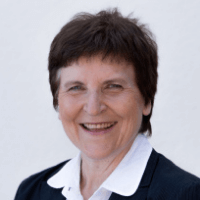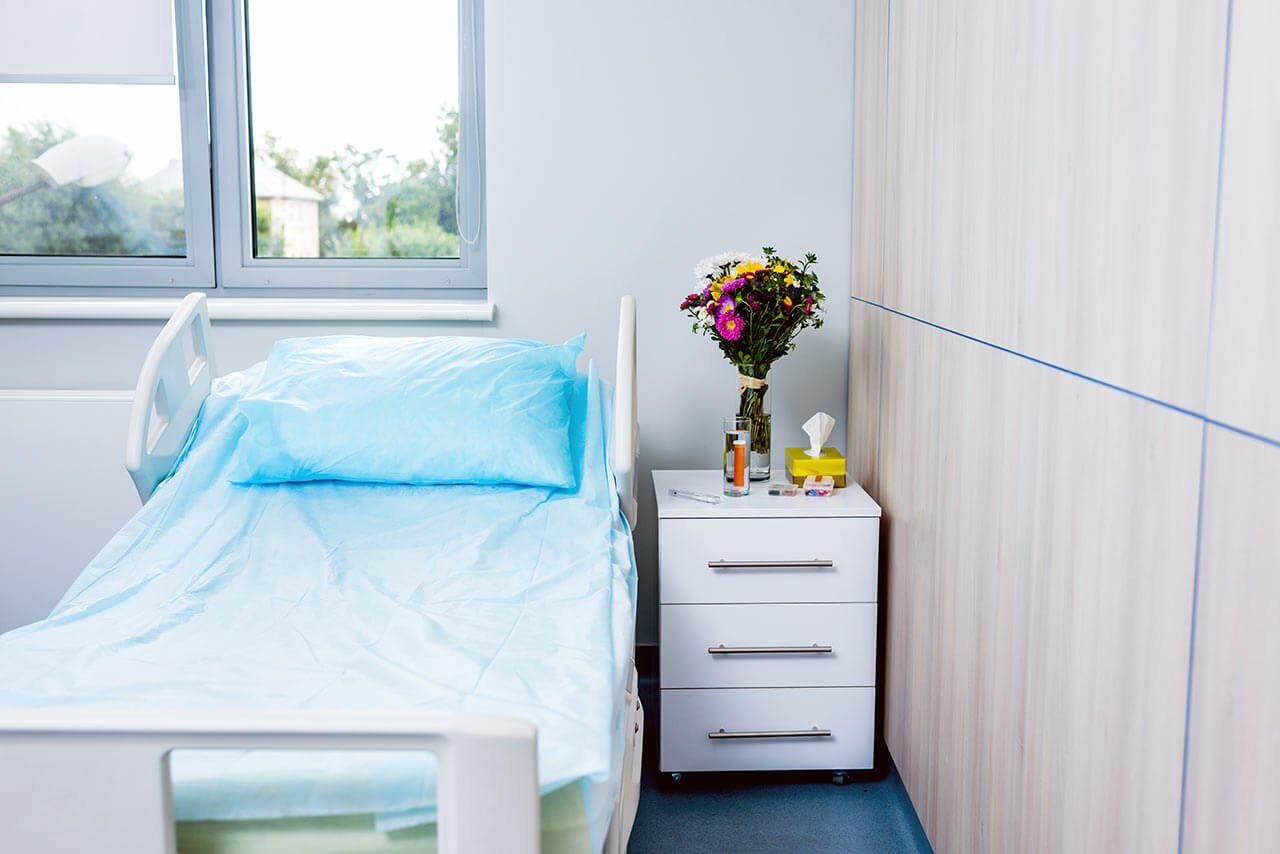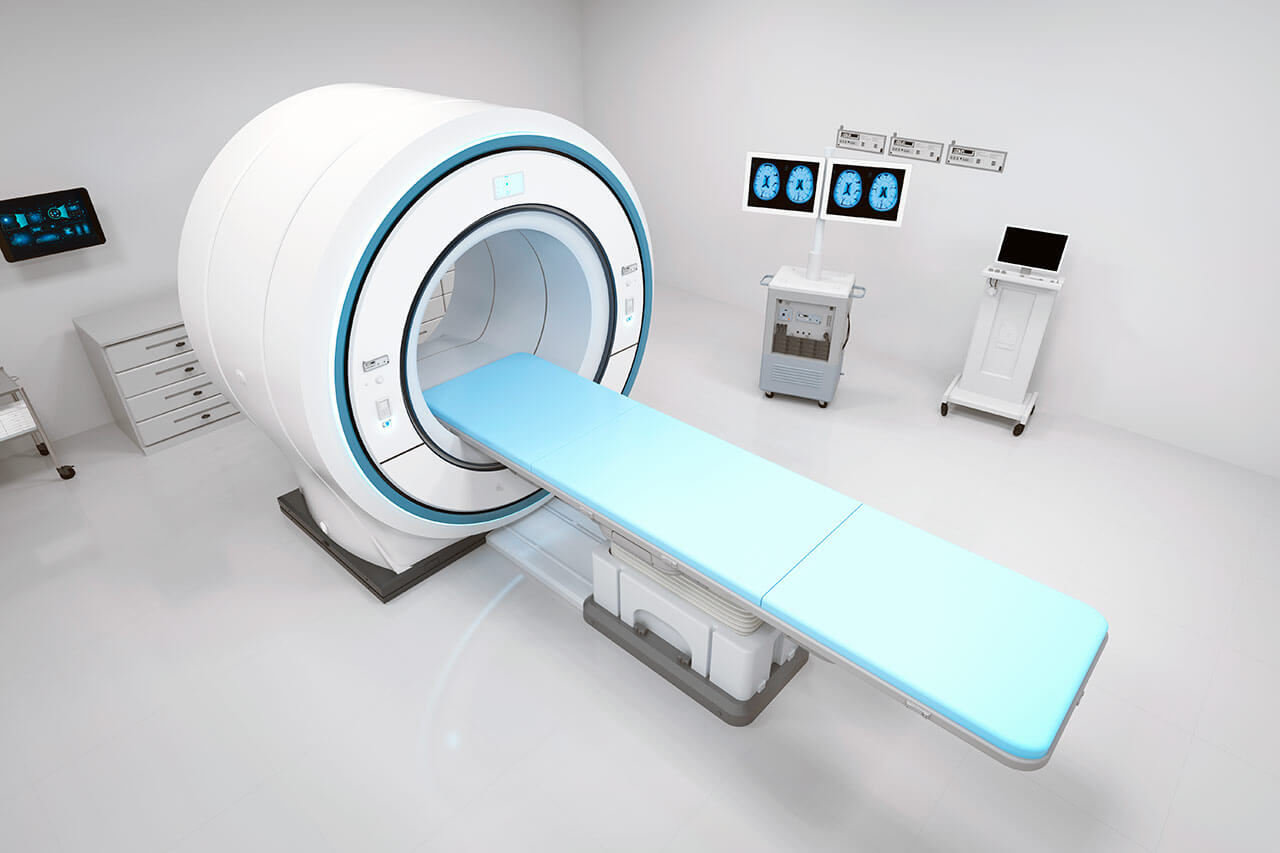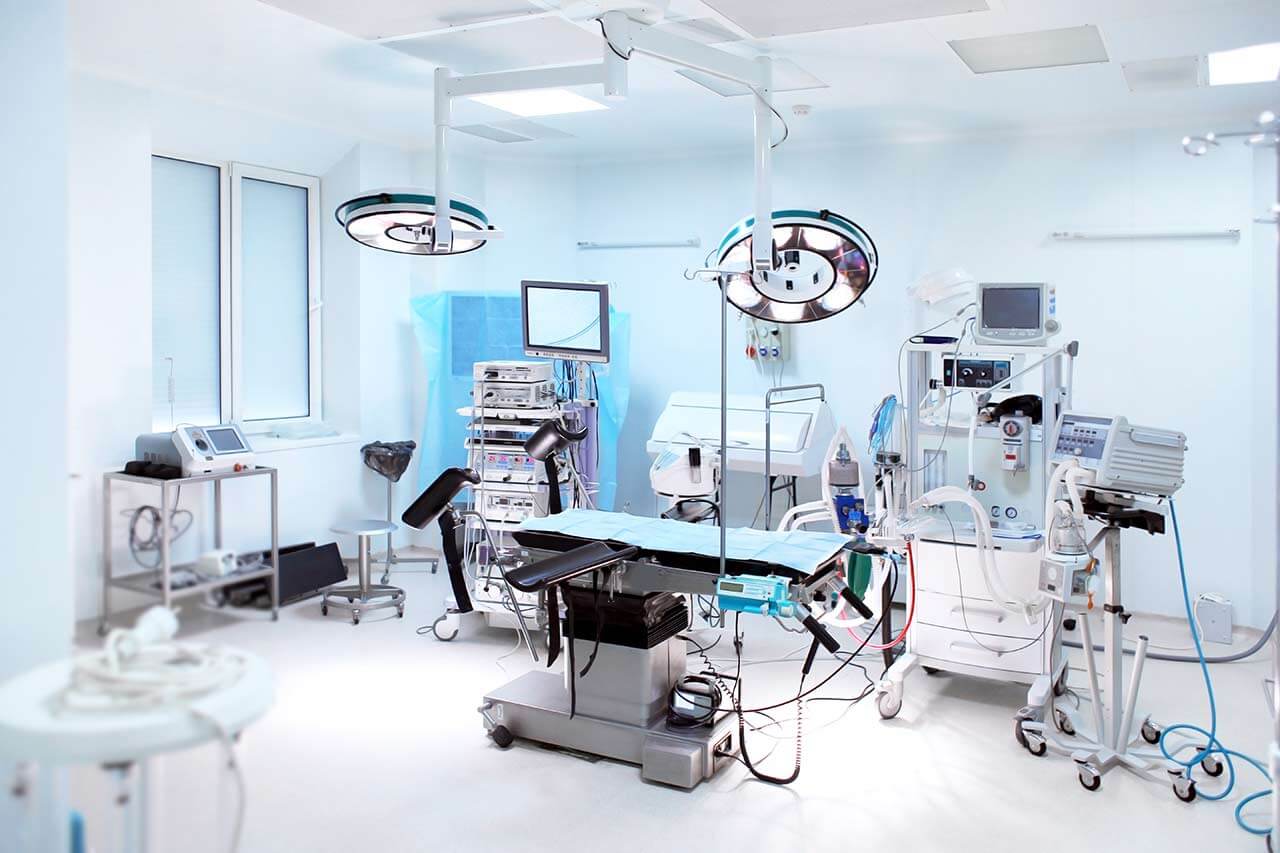
The program includes:
- Initial presentation in the clinic
- clinical history taking
- review of medical records
- physical examination
- ophthalmologic examination:
- slit lamp examination
- ophthalmoscopy
- visometry (without correction and with correction)
- endoscopic intubation of the lacrimal duct
- bacteriological analysis of eye swab
- nursing services
- diagnosis by chief physician and all leading experts
- explanation of individual treatment plan
Required documents
- Medical records
Service
You may also book:
 BookingHealth Price from:
BookingHealth Price from:
About the department
The Department of Adult and Pediatric Ophthalmology at the University Hospital Giessen UKGM offers all modern diagnostic and therapeutic options for patients with eye diseases. The department treats patients of all age groups – from young children to elderly people. The department has all effective treatment methods (conservative and surgical) to guarantee the optimal result. The medical team also has unique experience in the treatment of particularly complex and rare eye pathologies. The department's quality management system is certified in accordance with the guidelines of ISO EN 9001: 2008, therefore it meets the highest medical standards.
The department is headed by a highly qualified ophthalmologist with excellent qualifications – Prof. Dr. med. Birgit Lorenz. According to the Focus magazine, Prof. Lorenz ranks among the top German doctors specializing in strabismus correction!
The department has the status of highly specialized medical facility in surgical treatment of diseases of the eye muscles of all degrees of severity. Another priority focus of the department's work is the diagnostics and treatment of patients with hereditary eye diseases. Along with ophthalmological specialization, Prof. Lorenz also has additional qualifications in human genetics. Due to the combination of clinical diagnostic techniques with molecular genetic tests, the department provides its services to patients with hereditary eye diseases.
The department also focuses on plastic reconstructive and aesthetic eye surgery. The competence includes interventions for eyelid correction, operations in the periorbital region, on the tear ducts and orbit. The Chief Physician of the department, Prof. Lorenz, has special professional knowledge and skills in this field, which are confirmed by certification of the German Ophthalmological Society and the Professional Association of German Ophthalmologists. Dr. Lorenz has more than 800 successful plastic reconstructive and aesthetic eye surgeries.
Pediatric ophthalmology is represented by a specialized team of doctors who admit young patients in a pleasant atmosphere with playrooms. A decisive role is played by the timely detection of eye pathology, which can be congenital or develop during the first years of child's life. The most common eye diseases in children include retinopathy of prematurity, impaired functionality of the nasolacrimal canal in infants, amblyopia, strabismus, etc.
The service range of the department includes:
- Diagnostics and treatment of eye diseases in children, including telemedicine screening of premature babies with suspected retinopathy of prematurity
- Diagnostics and treatment of hereditary eye diseases
- RPE65 gene therapy for hereditary retinal diseases in patients with RPE65 deficiency
- Surgical treatment of retinal detachment
- Pneumatic retinopexy
- Pars plana vitrectomy
- Strabismus correction in adults and children
- Diagnostics and treatment of diabetic retinopathy (proliferative and non-proliferative)
- Diagnostics and treatment of age-related macular degeneration
- Cataract surgery
- Diagnostics and treatment of glaucoma
- Diagnostic imaging
- Heidelberg retinal tomography
- Optical coherence tomography
- PENTACAM examinations of the cornea, anterior chamber of the eye, iris and lens
- Ultrasound examinations
- Consultations and selection of optical aids (glasses, contact lenses, etc.)
- Plastic aesthetic and reconstructive surgery of the eye (interventions for the correction of the eyelids, surgery in the periorbital area, on the tear ducts and orbit)
- Diagnostics and treatment of uveitis
- Other medical services
Curriculum vitae
Academic Сareer
- 1997 Fellow of the European Board of Ophthalmology (FEBO).
- 1991 Optional advanced training in Medical Genetics.
- 1982 - 1991 Senior Physician, Department of Ophthalmology, University Hospital of Ludwig Maximilian University of Munich.
- 1983 Research Fellow at the Institute of Ophthalmology, London, Moorfields Eye Hospital, Hospital for Sick Children, London, UK.
- 1982 Board Certification in Ophthalmology, Bavarian Medical Association (BLÄK).
- 1977 - 1982 Assistant Physician, Department of Ophthalmology, University Hospital of Ludwig Maximilian University of Munich.
- 1977 Admission to medical practice.
- 1974 Doctoral thesis defense with honors, Ludwig Maximilian University of Munich.
- 1968 - 1974 Study of Human Medicine, Ludwig Maximilian University of Munich and Paris-Sorbonne University, France.
Scientific Qualifications
- Since 08.2007 W3 Professor, Department of Strabology and Neuro-Ophthalmology, Justus Liebig University Giessen, as well as the Head of the Department of Adult and Pediatric Ophthalmology at the University Hospital Giessen UKGM.
- 1996 - 2007 C3 Professor and Head of the Department of Pediatric Ophthalmology, Strabismus Correction and Ophthalmic Genetics, University Hospital Regensburg.
- 1991 - 2007 C3 Professor in Pediatric Ophthalmology, Strabismus Correction and Ophthalmic Genetics, University Hospital Regensburg.
- 1989 Habilitation in Ophthalmology, Ludwig Maximilian University of Munich.
Memberships, Awards and Honors
- 2018 ARVO SILVER FELLOW Prize of the Association for Research in Vision and Ophthalmology.
- 2017 Lifetime Achievement Award of the European Pediatric Ophthalmological Society (EPOS).
- Since 2017 Coordinator of the Priority Program of the German Research Foundation (DFG) "Gene and Cell Therapy for the Treatment of Neuroretinal Degeneration", SPP 2127.
- 2017 Scientific Prize of the Bielschowsky Society for Strabismus and Neuro-Ophthalmology.
- Since 2016 Head of the Section for Rare Eye Diseases in Children of the European Reference Network on Rare Eye Diseases (ERN-EYE).
- Since 2016 Editor of Ophthalmogenetics Column, Klinische Monatsblätter für Augenheilkunde.
- Since 2015 President of the International Society for Genetic Eye Diseases and Retinoblastoma (ISGEDR).
- Since 2013 Steering Committee Member, EVICR.net European Vision Institute Clinical Research Network and Coordinator for Rare Eye Diseases.
- Since 2013 Board Member of the German Ophthalmological Society (DOG).
- Since 2012 Member of the Academia Ophthalmologica Internationalis (AOI).
- Since 2012 Member of the European Academy of Ophthalmology (EAO).
- 2012 Visiting Professor, Boston Children's Hospital, Harvard University, USA.
- Since 2011 Initiator and Spokesman of the Section on Genetics of the German Ophthalmological Society (DOG).
- 2011 Award for Teaching Activities of the European Strabismological Association (ESA), Bruges.
- 2007 - 2015 Member of the Scientific Advisory Board of the Alliance for Chronic Rare Diseases (ACHSE e.V.).
- 2002 - 2010 President of the European Pediatric Ophthalmological Society (EPOS).
- 2001 - 2005 President of the Bielschowsky Society for Strabismus and Neuro-Ophthalmology.
- Association for Research in Vision and Ophthalmology (ARVO).
- German Ophthalmological Society (DOG).
- American Academy of Ophthalmology.
- German Society of Human Genetics.
- German Retina Society.
- EURETINA.
- European Paediatric Ophthalmological Society (EPOS).
- European Strabismological Association (ESA).
- International Society for Genetic Eye Diseases and Retinoblastoma (ISGEDR).
- International Society for Clinical Electrophysiology of Vision (ISCEV).
- Ophthalmic Genetics Study Club.
Clinical Focuses
- Conservative and surgical treatment of strabismus.
- Ptosis surgery.
- Treatment of cataracts in children.
- Treatment of retinopathy of prematurity.
- Treatment of nystagmus in children.
- Treatment of syndromic eye diseases.
- Neuroophthalmology.
- Genetic eye diseases.
Research Focuses
- Cataract in children.
- Nystagmus in children.
- Genotype-phenotype correlation.
- Treatment of rare eye diseases.
- Imaging of the retina and optic nerve.
- Retinopathy of prematurity.
- Retinal dystrophy.
- Psychophysical methods and clinical electrophysiology.
- Gene therapy.
Photo of the doctor: (c) UKGM - Universitätsklinikum Gießen und Marburg GmbH
About hospital
The University Hospital Giessen UKGM positions itself as an ultramodern medical facility with outstanding quality of medical care. The hospital presents almost all areas of medicine, ranging from ophthalmology to traumatology and dentistry. The priorities of the hospital’s activities include surgery, neurosurgery, oncology, nephrology with kidney transplantation and pediatric medicine.
The hospital is the third largest in Germany. Every year, more than 436,000 patients are treated in two locations of the hospital (Giessen and Marburg): 342,000 outpatients and 94,000 inpatients. The medical facility is the first privatized university hospital in the country.
The hospital staff is engaged not only in clinical practice, but also in research activities on the basis of the Faculty of Medicine at Justus Liebig University Giessen and Philipps University of Marburg, which contributes to a significant contribution to the development of modern medicine. During the many years of productive work on the development of new diagnostic and treatment methods, the hospital’s doctors managed to make many significant discoveries.
The hospital enjoys an excellent reputation in Germany and far beyond its borders. It managed to gain such credibility thanks to the high competence of doctors, advanced equipment, high-quality medical service and care.
Photo: (c) depositphotos
Accommodation in hospital
Patients rooms
The patients of the University Hospital Giessen UKGM live in comfortable rooms made in a modern design and light colors. Each room has an ensuite bathroom with shower and toilet. The standard room furnishing includes an automatically adjustable bed, a bedside table, a wardrobe, a table and chairs for receiving visitors, a TV, a telephone.
Meals and Menus
The patients of the hospital are offered balanced, healthy three meals a day: buffet breakfast, lunch and dinner. The private kitchen, certified according to DIN EN ISO 9001:2000, is responsible for providing patients with food and drinks.
If for some reason you do not eat all foods, you will be offered an individual menu. The hospital also has a cafeteria with a large assortment of hot and cold drinks, snacks and desserts.
Further details
Standard rooms include:
Television
All patient rooms are equipped with TV sets. If you have some questions, please contact medical personnel.
Religion
Religious services can be provided upon request.
Accompanying person
During an inpatient program, an accompanying person can stay with you in a patient room or in a hotel of your choice.
Hotel
During the outpatient program, you can stay at the hotel of your choice. Our managers will help you to choose the most suitable option.




